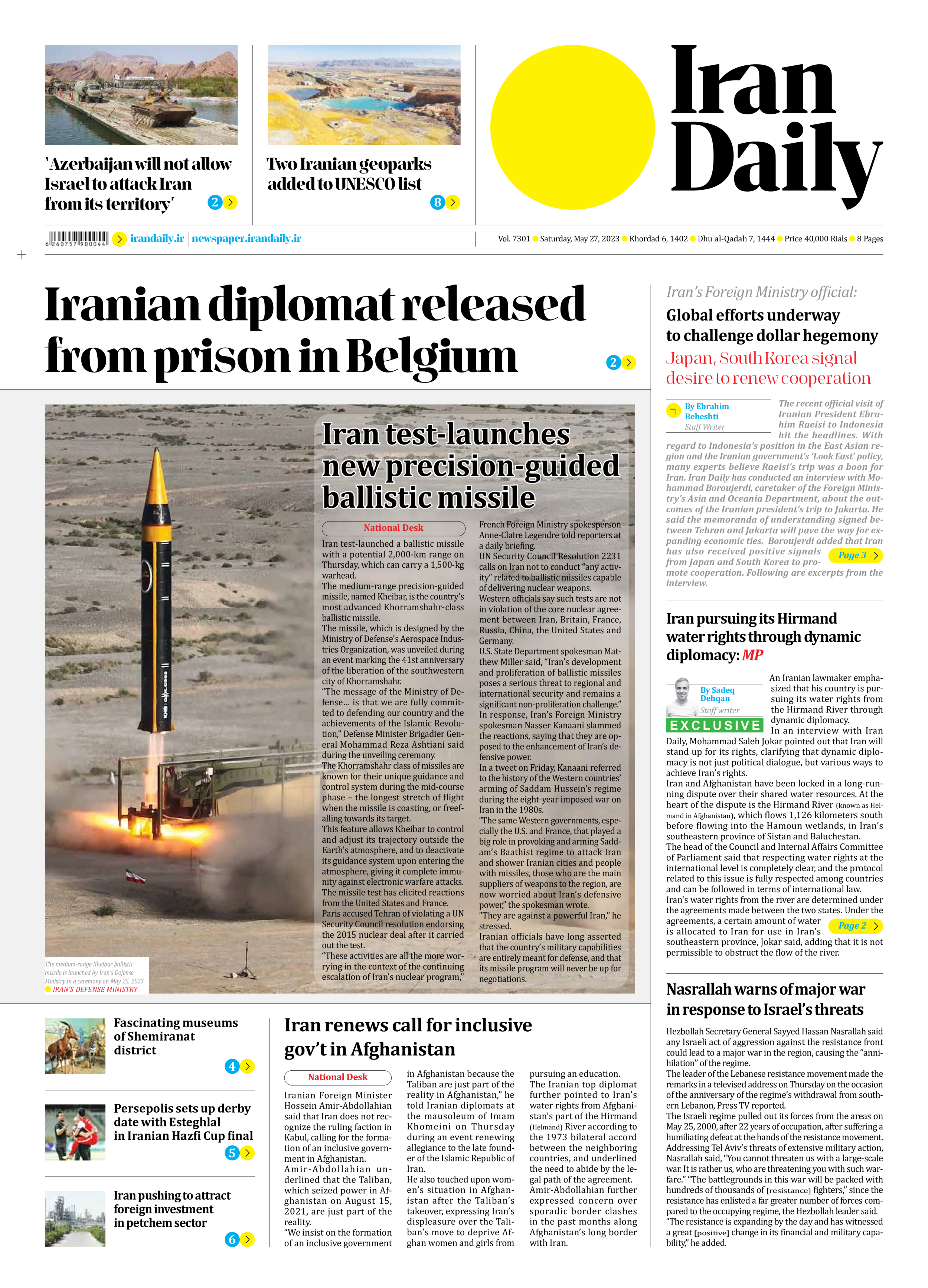
Iran test-launches new precision-guided ballistic missile
Iran test-launched a ballistic missile with a potential 2,000-km range on Thursday, which can carry a 1,500-kg warhead.
The medium-range precision-guided missile, named Kheibar, is the country’s most advanced Khorramshahr-class ballistic missile.
The missile, which is designed by the Ministry of Defense’s Aerospace Industries Organization, was unveiled during an event marking the 41st anniversary of the liberation of the southwestern city of Khorramshahr.
“The message of the Ministry of Defense… is that we are fully committed to defending our country and the achievements of the Islamic Revolution,” Defense Minister Brigadier General Mohammad Reza Ashtiani said during the unveiling ceremony.
The Khorramshahr class of missiles are known for their unique guidance and control system during the mid-course phase – the longest stretch of flight when the missile is coasting, or freefalling towards its target.
This feature allows Kheibar to control and adjust its trajectory outside the Earth’s atmosphere, and to deactivate its guidance system upon entering the atmosphere, giving it complete immunity against electronic warfare attacks.
The missile test has elicited reactions from the United States and France.
Paris accused Tehran of violating a UN Security Council resolution endorsing the 2015 nuclear deal after it carried out the test.
“These activities are all the more worrying in the context of the continuing escalation of Iran’s nuclear program,” French Foreign Ministry spokesperson Anne-Claire Legendre told reporters at a daily briefing.
UN Security Council Resolution 2231 calls on Iran not to conduct “any activity” related to ballistic missiles capable of delivering nuclear weapons.
Western officials say such tests are not in violation of the core nuclear agreement between Iran, Britain, France, Russia, China, the United States and Germany.
U.S. State Department spokesman Matthew Miller said, “Iran’s development and proliferation of ballistic missiles poses a serious threat to regional and international security and remains a significant non-proliferation challenge.”
In response, Iran’s Foreign Ministry spokesman Nasser Kanaani slammed the reactions, saying that they are opposed to the enhancement of Iran’s defensive power.
In a tweet on Friday, Kanaani referred to the history of the Western countries’ arming of Saddam Hussein’s regime during the eight-year imposed war on Iran in the 1980s.
“The same Western governments, especially the U.S. and France, that played a big role in provoking and arming Saddam’s Baathist regime to attack Iran and shower Iranian cities and people with missiles, those who are the main suppliers of weapons to the region, are now worried about Iran’s defensive power,” the spokesman wrote.
“They are against a powerful Iran,” he stressed.
Iranian officials have long asserted that the country’s military capabilities are entirely meant for defense, and that its missile program will never be up for negotiations.







